Authors Gergely Orosz
7 days
30 days
All time
Recent
Popular
The 12 most important pieces of information and concepts I wish I knew about equity, as a software engineer.
A thread.
1. Equity is something Big Tech and high-growth companies award to software engineers at all levels. The more senior you are, the bigger the ratio can be:

2. Vesting, cliffs, refreshers, and sign-on clawbacks.
If you get awarded equity, you'll want to understand vesting and cliffs. A 1-year cliff is pretty common in most places that award equity.
Read more in this blog post I wrote: https://t.co/WxQ9pQh2mY
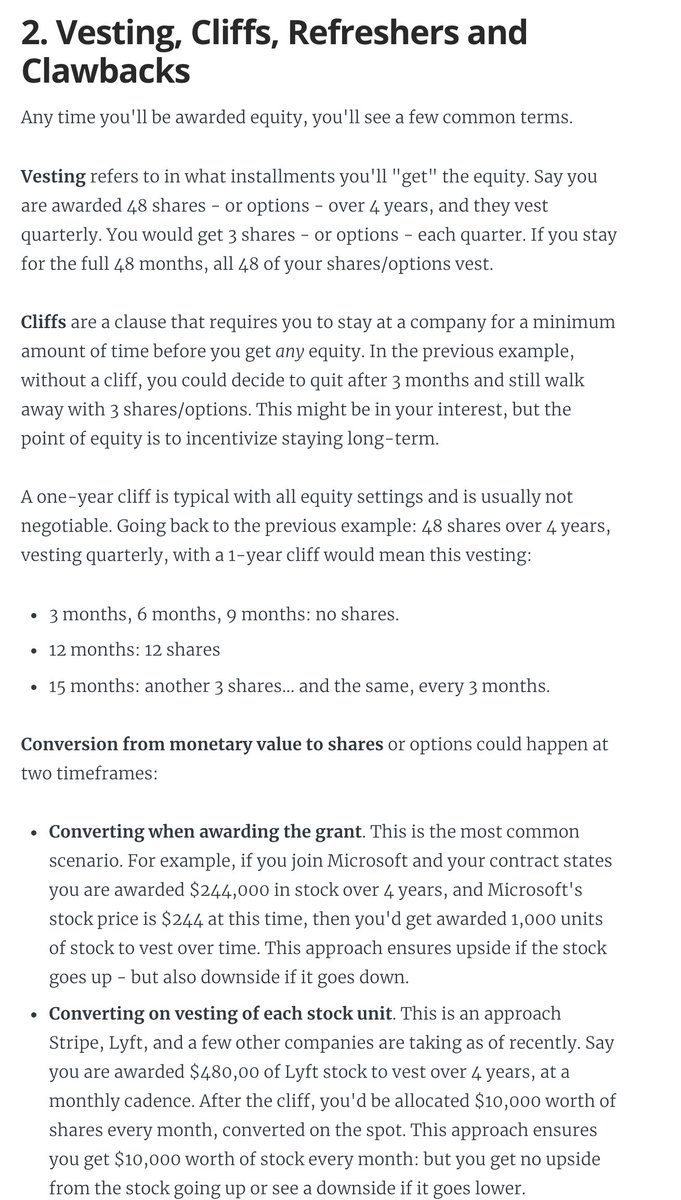
3. Stock options / ESOPs.
The most common form of equity compensation at early-stage startups that are high-growth.
And there are *so* many pitfalls you'll want to be aware of. You need to do your research on this: I can't do justice in a tweet.
https://t.co/cudLn3ngqi
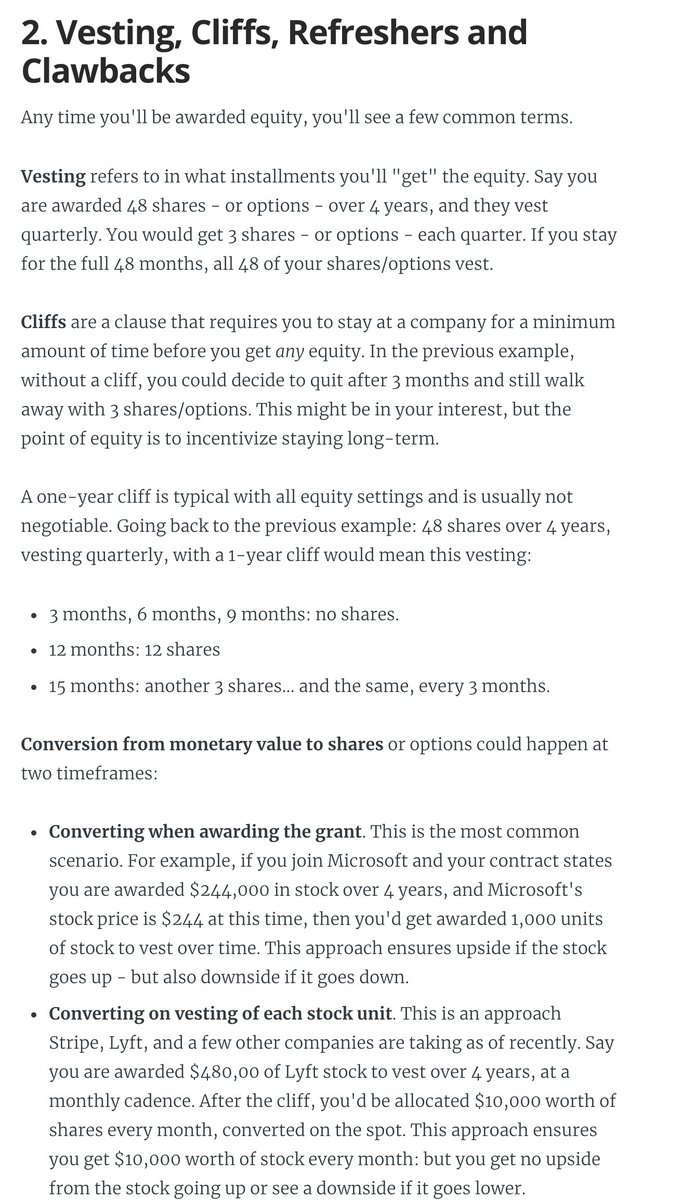
4. RSUs (Restricted Stock Units)
A common form of equity compensation for publicly traded companies and Big Tech. One of the easier types of equity to understand: https://t.co/a5xU1H9IHP
5. Double-trigger RSUs. Typically RSUs for pre-IPO companies. I got these at Uber.
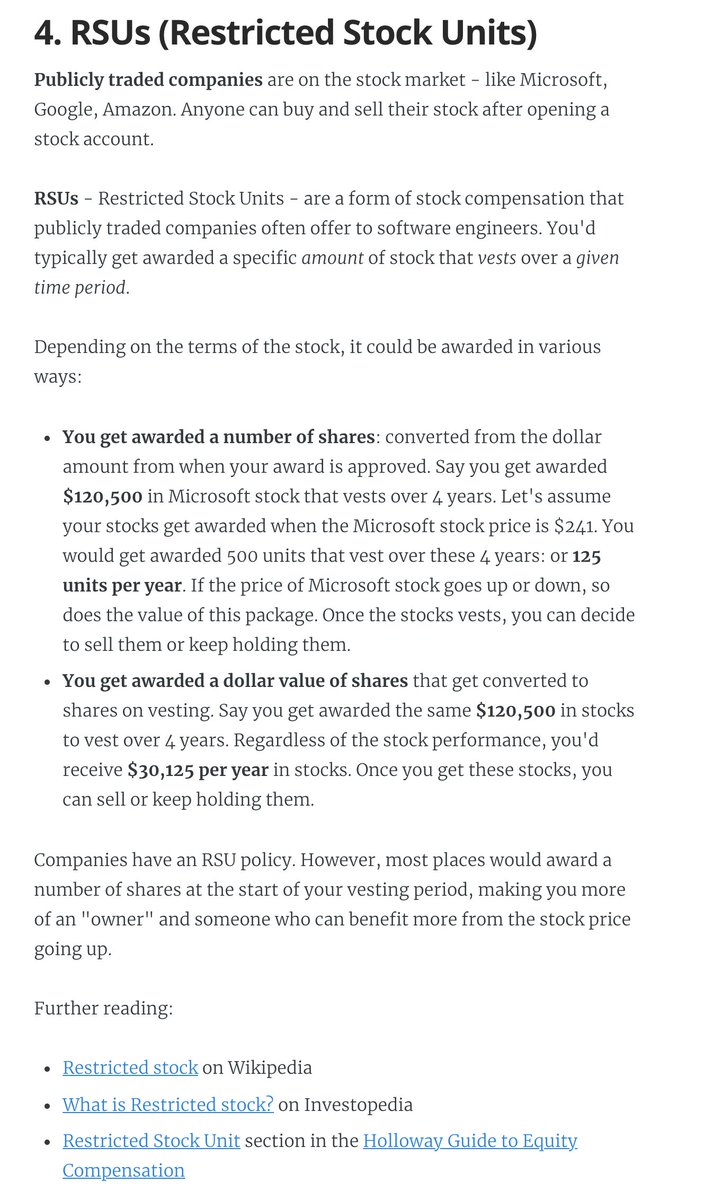
6. ESPP: a (typically) amazing employee perk at publicly traded companies. There's always risk, but this plan can typically offer good upsides.
7. Phantom shares. An interesting setup similar to RSUs... but you don't own stocks. Not frequent, but e.g. Adyen goes with this plan.
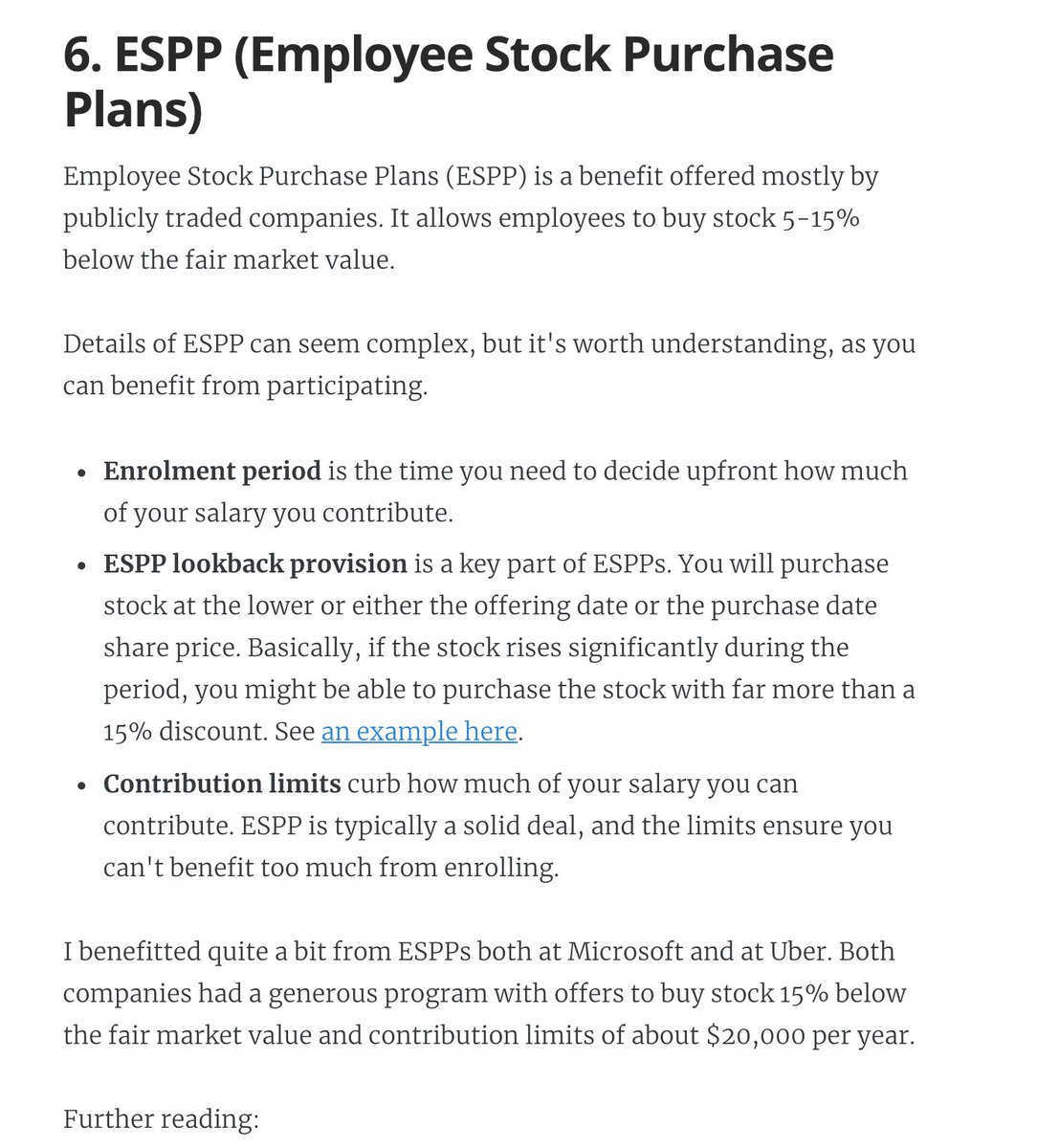
A thread.
1. Equity is something Big Tech and high-growth companies award to software engineers at all levels. The more senior you are, the bigger the ratio can be:

2. Vesting, cliffs, refreshers, and sign-on clawbacks.
If you get awarded equity, you'll want to understand vesting and cliffs. A 1-year cliff is pretty common in most places that award equity.
Read more in this blog post I wrote: https://t.co/WxQ9pQh2mY

3. Stock options / ESOPs.
The most common form of equity compensation at early-stage startups that are high-growth.
And there are *so* many pitfalls you'll want to be aware of. You need to do your research on this: I can't do justice in a tweet.
https://t.co/cudLn3ngqi

4. RSUs (Restricted Stock Units)
A common form of equity compensation for publicly traded companies and Big Tech. One of the easier types of equity to understand: https://t.co/a5xU1H9IHP
5. Double-trigger RSUs. Typically RSUs for pre-IPO companies. I got these at Uber.

6. ESPP: a (typically) amazing employee perk at publicly traded companies. There's always risk, but this plan can typically offer good upsides.
7. Phantom shares. An interesting setup similar to RSUs... but you don't own stocks. Not frequent, but e.g. Adyen goes with this plan.

How do you bring up the topic of promotions with your manager?
My 7 pieces of advice (thread)
1. Understand how proms work at your company.
2. Talk with your manager: get them on your side. If you don't bring it up: don't expect it to happen.
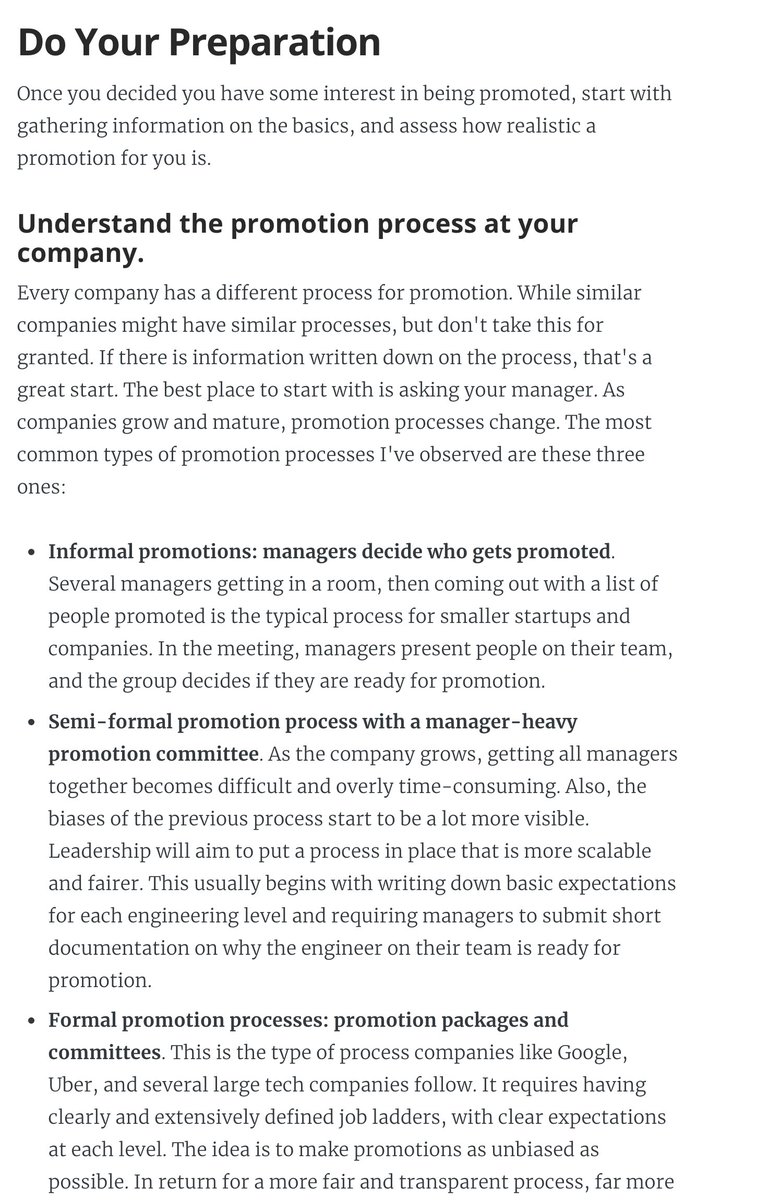
2. (Cont'd) It's in all managers' interest to have people promoted who are already performing at the next level. Makes the manager look good! You're on the same team.
3. Be realistic about what it takes to be promoted above the senior levels. These are usually far more difficult.
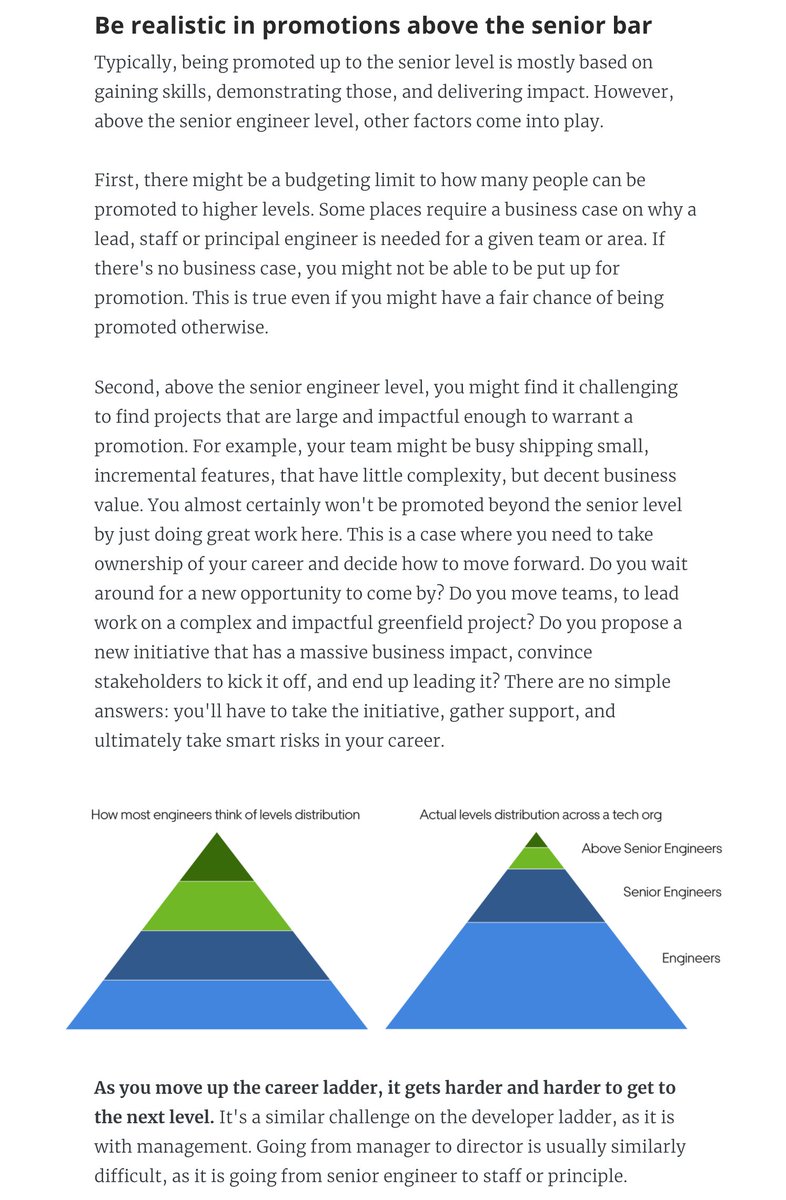
4. Set goals to "close the gap" that you have compared to the next level. Act like you would like if you had the title. Keep a work log.
5. Find a mentor within the company. Ask for regular feedback.
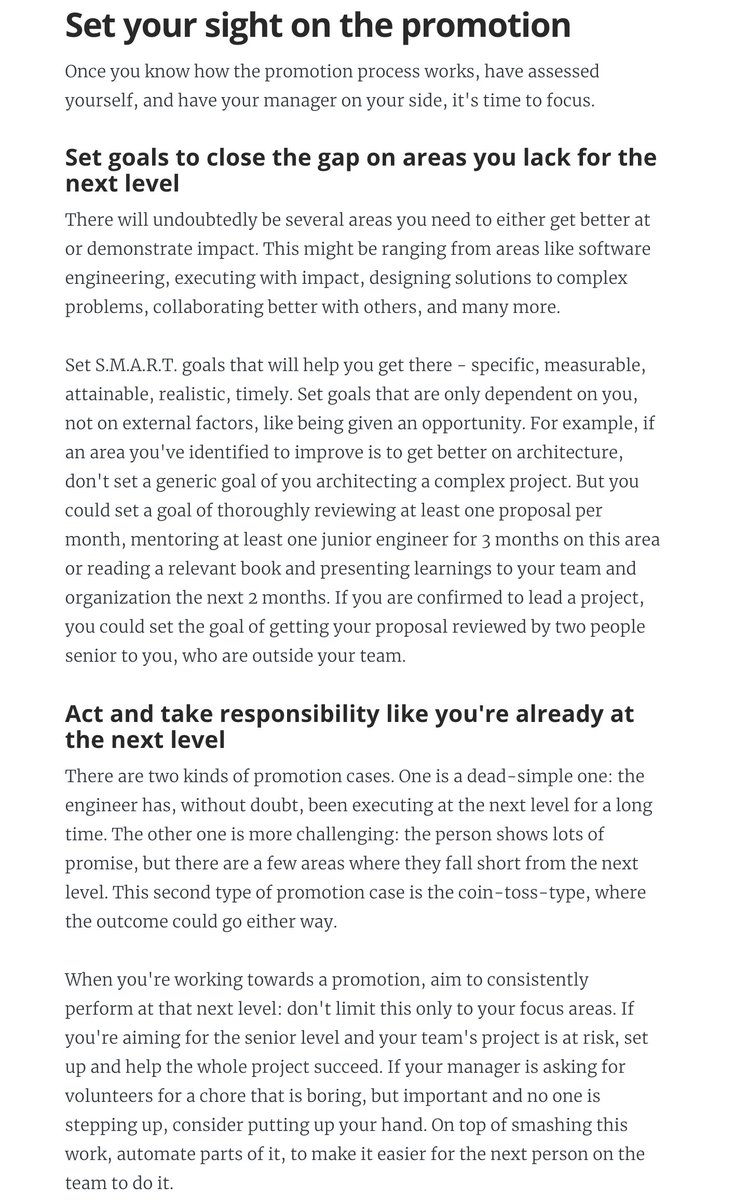
6. Don't "blindly chase" the promotion, alienating others. Stay grounded, but put in the work.
7. Don't have promotion be your only goal. Aim for professional growth, over chasing titles.
I wrote all this down in an article, with resources & templates: https://t.co/snzDxGcG01
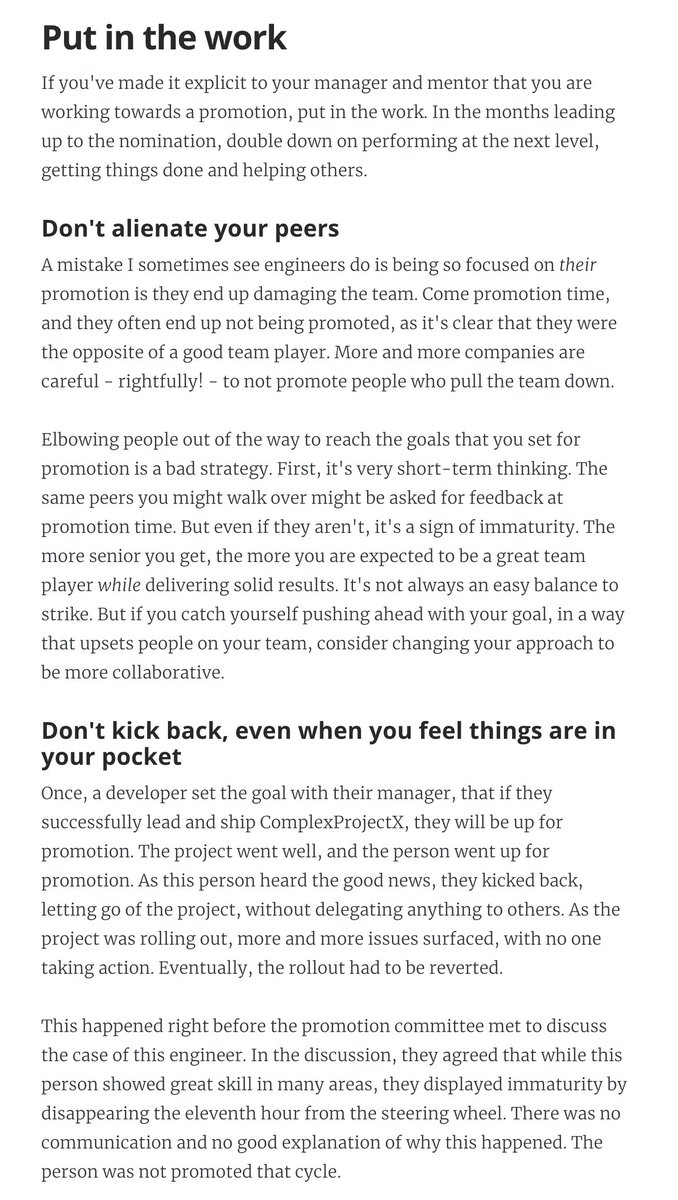
My 7 pieces of advice (thread)
1. Understand how proms work at your company.
2. Talk with your manager: get them on your side. If you don't bring it up: don't expect it to happen.

2. (Cont'd) It's in all managers' interest to have people promoted who are already performing at the next level. Makes the manager look good! You're on the same team.
3. Be realistic about what it takes to be promoted above the senior levels. These are usually far more difficult.

4. Set goals to "close the gap" that you have compared to the next level. Act like you would like if you had the title. Keep a work log.
5. Find a mentor within the company. Ask for regular feedback.

6. Don't "blindly chase" the promotion, alienating others. Stay grounded, but put in the work.
7. Don't have promotion be your only goal. Aim for professional growth, over chasing titles.
I wrote all this down in an article, with resources & templates: https://t.co/snzDxGcG01

